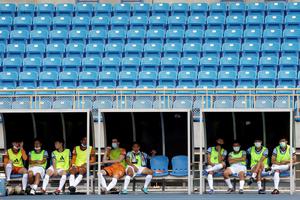Govt Response to The Economist’s Criticism on Economy under Jokowi

The Economist published an article criticizing the government of Joko Widodo (Jokowi) and Jusuf Kalla three months before the Presidential Election (Pilpres) on 17 April 2019. One of the criticisms in the article was about Jokowi’s inability to realise his economic promises due to populist policy barriers. The government immediately denied this criticism by publishing various data.
The British economic media published the article "Indonesia's Economic Growth is Being Held Back by Populism" by citing the World Bank’s calculation data. Based on the data, Indonesia’s potential growth is 5.5 percent, which can be taken by increasing investment to revive the manufacturing sector and emulating other Asian countries that are part of the global supply chain.
Infrastructure development is the key in attracting investment. At the beginning of his administration, Jokowi did focus on completing delayed and non-existent infrastructure development. However, his budget policy changed direction since last year. The focus began to be divided, reducing the allocation of capital expenditure for infrastructure and being replaced by subsidy spending. Improvement of regulations that support investment was also done half-heartedly.
The Economist also sees that Indonesian workers lack of skill and always demand high wages even though their wages are already high, reaching 45 percent and exceeding Vietnam’s labours. Vietnam has become a serious rival for Indonesia in attracting investors, especially China, which has been affected by trade war with the US.
The criticisms become a big homework that should be resolved if Jokowi is elected again as president. “The economy is Jokowi’s biggest vulnerability. Its realisation is not yet in accordance with his promises,” The Economist wrote in the article published on 17 January. During the 2014 campaign, Jokowi promised a seven percent growth in Gross Domestic Product (GDP) per year, but the growth was only in the range of five percent towards the end of his term last year.
The Economic Coordinating Minister Darmin Nasution did not give much comment to answer the criticism from the media established by James Wilson in 1843. He is aware the government has not yet succeeded in realizing Jokowi’s promise to increase economic growth by seven percent. “No country can meet it [the target]. Tell me if there's one. The global economy is currently in turmoil,” he said on Friday (1/25).
The Economist’s criticism has a big impact, considering this media has 1.5 million customers and is one of the references for entrepreneurs and several heads of state in the world. Moreover, many people consider the articles in this media to be the voice of global entrepreneurs.
This is why the president took this criticism seriously. According to the Presidential Special Staff for Economic Affairs Ahmad Erani Yustika, the government appreciated the criticism. “But many of the criticisms need to be clarified because they are not based on accurate data and comprehensive maps of Indonesia’s economic progress,” he said in a written statement, Sunday (1/27).
Although it has not yet reached the target, Erani said the Indonesia’s economic condition is still good, as proven by the continued growth of investment. In 2015-2017, the Gross Fixed Capital Formation (PMTDB) grew by 5.2 percent per year. In 2012-2014, the average growth was only 3.5 percent per year.
The slowdown in world economic growth since 2011 has actually affected the pace of investment. The total investment grew to the highest level of 27 percent in 2013, but then dropped significantly to only 16 percent in the following year, and 13 percent in 2016. The pace of investment began to recover at the level of 13 percent in 2017.
The slow growth of foreign investment could be balanced with domestic investment. The realisation of Domestic Direct Investment (PMDN) has been growing by an average of more than 20 percent since 2016. According to Erani, this happened thanks to policies adopted by the government, such as deregulation and de-bureaucratization through the implementation of Online Single Submission (OSS) licensing, the increase of competitiveness and Ease of Doing Business (EoDB) ranking.






